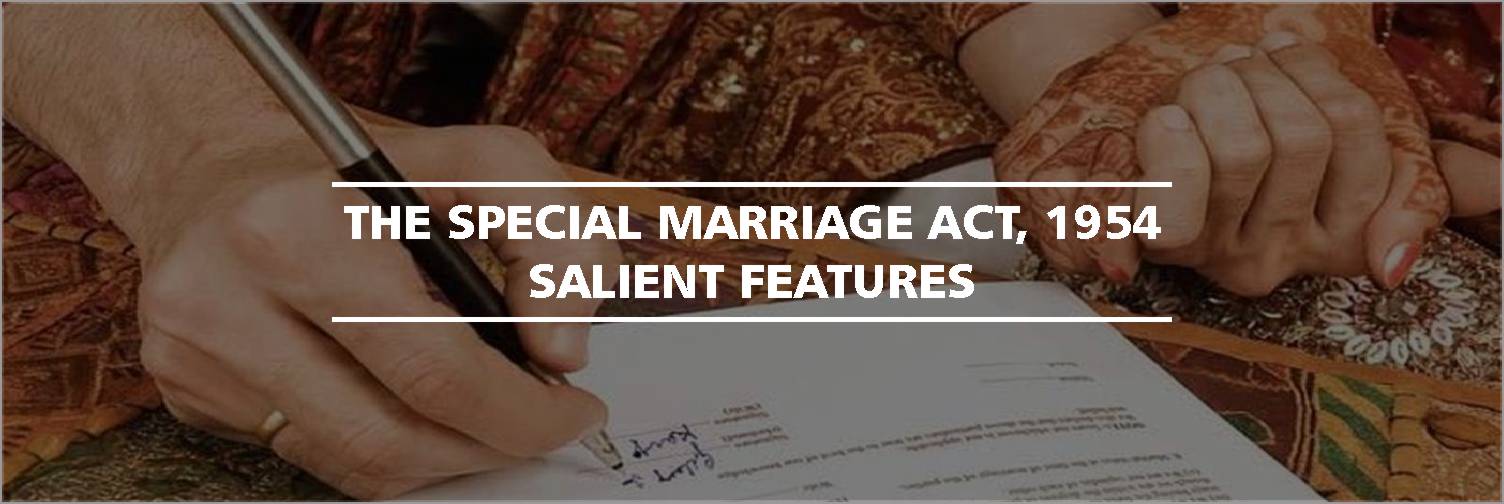Introduction
Marriage is an important social institution regarded as a religious sacrament in India. It not only involves a matrimonial alliance of two individuals but a union of two families signifying a lifetime commitment towards each other. Every aspect of human society that gives rise to civilization is built around the institution of marriage. Being the most profound and complicated relationship of human beings, it requires individuals to live their lives together with their different perspectives and differences. However, in the modern world, an increasing number of marriages end in divorce, leading to the emergence of pre-nuptial agreements. These agreements act as a safeguard and provide a sense of security to the individuals, thus making it easier for courts to grant a divorce.
The article analyzes the prenuptial agreements and their validity in India. It will further examine the legality of prenuptial agreements with personal laws in India and various high court cases are also discussed as the Supreme Court has not given any judgment to date.
Prenuptial Agreements
Prenuptial Agreements, also known as prenups, is a written contract between the two individuals before getting married which includes each party’s property rights during the marriage and in the case of a divorce, as well as the debts and assets each party has. The agreement also clearly outlines the costs incurred during the wedding and includes a list of the things or gifts brought to the wedding as well as those given to the wife by the husband.
Prenuptial agreements have their origin in the Western world where more than half of marriages result in divorce makes it essential to make an agreement that provides a precautionary measure to the couple. In contrast to Western culture where marriage is seen as a contract, Indian culture still views marriage as a sacred union. However, owing to the rise of individualism and the importance of personal property in contemporary culture, prenuptial agreements are now becoming more important to individuals with significant assets or property that they want to safeguard. Due to evolving dating and marriage apps, people find their soulmates and build their trust in a very short period which later leads to the breakdown of the marriage. Moreover, sometimes, individuals marry due to heavy pressure from the family and continue to be in a relationship with someone else, this makes prenuptial agreement essential for the other person to claim his/her rights.
The Union Minister of Woman and Child Development in 2015 advised Union Minister of Law and Justice Sadananda Gowda to legalize the prenuptial agreement in India as she believes that this will protect the interests of women in a patriarchal society. These agreements can prevent them from long battles of divorce and issues of maintenance. But, no step has been taken so far.
Validity of Prenuptial Agreements in India
As Indian culture still considers marriage as a holy sacrament rather than a contract, Prenuptial agreements do not have legal sanctity in India. However, it may be governed by the Indian Contract Act of 1872, which stipulates in Section 10 that a contract must be entered with the free consent of both parties to be considered valid; however, Section 23 states that any agreement that violates public policy or is immoral shall be declared void. As a result, even though a prenup was made with free consent, it will be regarded as void as it violates public policy.
Prenuptial agreements are nevertheless considered to be legal in two situations.
- First, Prenuptial agreements are recognized as binding law in Goa if a marriage is solemnized following the Special Marriage Act of 1954 and all necessary documents of the declaration are properly registered at the Register Office. Goa follows the Portuguese Civil Code of 1867, so prenuptial agreements are legal in that state as well. The Supreme Court in the case of Damodar Ramnath Alve v. Gokuldas interpreted the Goa Civil Code and held that “Goa Civil Code has strengthened the “basic unit of the society-the family-by safeguarding the interests of the children and widows”.
- Second, Prenuptial agreements must have reasonable terms and conditions to be recognized as valid in courts of law. For instance, if a prenup stipulates that the wife gives up her legal rights, the court will instantly annul the agreement since it violates Section 28 of the Indian Contract Act, which specifies that any arrangement that hinders legal processes is void.
Personal Laws of India and Judicial Pronouncements
Hindu Law–
- In Hindu Law, the Hindu Marriage Act, of 1955 regulates marriages and divorces among Hindus, Sikhs, Jains, and Buddhists which considers prenuptial agreements as invalid as it regards marriage as a holy sacrament and not a contract. However, certain case laws contend that there have been many scenarios where cases involving prenuptial agreements have been interpreted by Indian courts under Hindu law.
- In the case of Tekait Mon Mohini Jemadai v. Basanta Kumar Singh, the husband at the time of marriage signed a prenuptial agreement with his wife that after the marriage, he and his parents would live in his mother-in-law’s house forever. But, after some years, differences arose between them and as a result, the husband along with his parents left her house and asked her wife to move out of that house and live with him. This was challenged by the wife in the court. However, the Calcutta High Court held the prenuptial agreement as void and opposed public policy as it sought to permanently restrict the husband’s rights under Hindu Law, which the court believed might lead to the couple’s eventual divorce.
- In the other case of Pran Mohan Das v. Hari Mohan Das, a prenuptial agreement was signed by the man and father of a woman that in lieu of marriage, he would give his property to his daughter as a marriage gift. Thus, the couple became owners of the property after marriage and soon they sold off the property. The father filed a suit against the couple for selling the property without his permission but the Calcutta High Court upheld the prenuptial agreement as being proper and legal since it protects the couple’s rights, and the plaintiff’s attempt to collect property was prevented by the concept of the “part-performance of a contract.”
Muslim Law-
- Prenuptial agreements are more common in Muslim law since marriages in the faith are governed by negotiations of the “Mahr” provision, which calls for a monetary payment from the husband to the wife. Mahr is the amount due to a married wife under either a mutually agreed-upon arrangement between the husband and wife or under the dictates of the law.
- In the case of Akileh v. Elchahal, the Appellate Court ruled that marriage is a legal and sufficient basis for upholding a prenup contract, and as a result, the contract should be deemed to be valid and enforceable.
- In the other case of Bai Fatma v. Ali Mahomed Aiyab, the court held that a contract that encourages future divorce between couples or provides for it must be declared unlawful since it violates public policy.
- Special Marriage Act of 1954 recognizes pre-nuptial agreements as legally binding if the marriage is solemnized as per proper registration at the registrar’s office with all the legal documents.
- In the case of Mozelle Robin Soloman v. R.J. Soloman, The court reviewed the marriage and divorce law of Jews and held that Jewish marriages are contracts and therefore, prenuptial agreements can be given effect in respect of Jewish marriage in India. The Court considers prenuptial agreements while passing orders on Christian marriage and divorce.
Conclusion
In a country where marriage is considered a holy sacrament, prenuptial agreements face harsh criticism as there is a constant concern that such agreements may damage the strong bonds that bind Indian families together. However, concerning the growing problems in modern society arising from an increase in individualism and personal property as well as views of the high court, the government should reconsider the stance of prenuptial agreements in India. Such agreements, containing detailed plans and providing freedom to both spouses regarding what they want from each other, can give them an equal footing and protect both parties, especially the female spouse, from injustices often present in marital relationships in India. Maintenance is the most important part of divorce that can be amicably solved through these agreements as the agreement itself would have terms and conditions, thus making it easier for courts to grant a divorce and speedy disposal of divorce cases. Additionally, it can reduce the cost of litigation in divorce cases which continues for a long time.
It is worth noting that the Supreme Court has yet to provide a judgment on prenuptial agreements, underscoring the need for the legislature to address the matter and establish guidelines governing the scope and extent of such agreements.
This article is written and submitted by Bhumika Grover during her course of internship at B&B Associates LLP. Bhumika is a BA.LLB 2nd Year student at Rajiv Gandhi National University of Law, Punjab.








